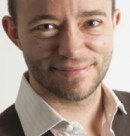The first 9 weekends of the training will be based on the 8 + 1 stages of Psychosocial Development by Erik & Joan Erikson, providing the students with a framework to identify developmental challenges and associated opportunities for growth, in themselves and their future clients.
Year 1 outline
• An overview of therapeutic approaches (intrapsychic, relational, transpersonal, etc.)
• Critical reflection on developmental psychology basics: attachment theory in particular; psychosocial development more broadly
• Overview of most common client presentations and approaches to working with them: anxiety & depression, DSM V
• Neuroscience foundations of psychotherapy work (based on Cozolino and Siegel’s interpersonal neurobiology work)
• Neuroscience changes over the lifespan: teach alexithymia, interoception development, and neurotransmitter level assessment questionnaire & what this means
• Ethical principles for therapists and frameworks for professional practice (contracting with the client, formulation, discontinuation of therapy, etc.)
• Schon’s “reflective practitioner”, self-tracking exercises and mindfulness practice
• Extensive therapy skills practice in dyads, potentially triads with 3rd student observing & feeding back
• Introduction to Gestalt therapy approaches with external trainer Angelika Wienrich, in the context of exploring emerging adolescent personality
• Introduce the concept of clinical responsibility and duty of care through what Supervision is and does
• Teachings from students on their “specialist subjects”, e.g. living with addiction, dissociative identity disorder, surviving sex work, coming out in a close-minded group, gender confirmation journey, emergency service work, etc.
• Group supervision (20-25 hours)
Year 2 outline
• Deepen neuroscience: default mode network, memory formation and fragility
• Deepen ethics, self-tracking and extensive therapy practice from Year One
• Critical exploration of psychopathologies: borderline, bi-polar, schizophrenia, panic disorder, conduct disorder & psychopathy, etc.)
• Chemical and behaviour addictions / eating disorder / self-harm / OCD / social anxiety presentations with specialist speakers invited
• Introduction to cognitive-behavioural and hypnotherapy approaches
• Introduction to transpersonal and spiritual counselling, including bereavement counselling
• Specialist speakers to go more in-depth with specific approaches to therapy; for example:
• Giselle Genillard for trauma therapy, including acute, chronic and vicarious trauma
• Tamara Russell for neuroscience-oriented mindfulness approaches to working with anxiety, OCD and self-harm
• Bernd Leygraf for Relationship & Psychosexual Therapy
• On the retreat, systemic constellation work and group process work will be demonstrated, and the use of ritual and ceremony in the therapeutic space
• Group supervision (20-25 hours)
Assessment
• Therapist skillset evaluated in class against a list of competencies
• Bi-monthly reflective assignments and client case studies
• Required participation in “fishbowls” (therapy session simulations observed by the group)
• Written reflections on Supervision
• Supervisor evaluation with audio recordings or transcribed excerpts
Learning outcomes
Unit 1: Working ethically, safely and professionally as a psychotherapist
1. Work within an ethical and legal framework
2. Work within a counselling / psychotherapy service organisation
3. Use supervision to work within own limits of proficiency
Unit 2: Working within a therapeutic relationship
1. Establish and sustain the boundaries of the therapeutic relationship
2. Establish and develop the therapeutic relationship
Unit 3: Working with client diversity in therapy work
1. Understand and work with diversity
2. Challenge own issues, fears and prejudices
3. Understand how diversity issues affect client access to talking therapy
Unit 4: Working within a user-centred approach to therapy
1. Work within a user-centred agreement for the therapy work
2. Maintain a user-centred focus throughout the therapy work
Unit 5: Working with self-awareness in the therapeutic process
1. Use psychotherapeutic and neurosomatic theory to understand own self
2. Work on personal issues that resonate with client work
3. Use self awareness to enhance therapeutic work
Unit 6: Working within a coherent framework of psychotherapeutic theory and skills
1. Use a coherent framework of theory and skills to inform and enhance therapy work
2. Understand and work with client problems at different service levels
Unit 7: Working self-reflectively as a psychotherapist
1. Manage own development as a psychotherapist
2. Reflect on and evaluate own counselling work within agency settings
Handbook
All course participants will be provided with an extensive course handbook, including handouts, code of ethics, assessment forms, learning outcome checklist, a reading list and more.
Course Format
The course is offered over 2 years, comprising a total of 18 weekends (9am – 5pm), plus two 5½ day retreats. Online group tutorials and online guided modules between classes are also offered.
Entry requirements
The key quality that applicants will need is an exposure to and meaning-making from the challenges of life in intensive or prolonged ways, such as a personal or professional history with trauma, addictions, bullying, destructive family patterns, or search for identity (manifested in sexual orientation, a process of gender confirmation, mixed heritage ethnicity, cultural belonging as a 1st or 2nd generation immigrant, etc.). This will likely have involved one or more courses of personal therapy.
This qualification is not suitable for those who are currently in a state of severe emotional difficulty and/or severe psychological confusion. The course involves experiential elements that will involve considerable personal disclosure and associated personal developmental activities.
Applicants must be intending (and actively seeking) to begin work with clients by the latest in Year Two. This can be as a volunteer in a charitable counselling service, or on a more formal clinical placement.
Student Support
Personal therapy requirement: Minimum 10 hours per year (ideally 20 hours per year, ideally every fortnight)
Supervision requirement: a minimum of 1 hour per 6 client sessions – this should amount to at least 1.5 hours per month once the student has started seeing clients
Peer support: small groups of students to meet in person / online between classes
Fees
£4,900 per year
(includes 20% VAT, and 5½ day retreat each year with meals; excludes accommodation). Payments can be made monthly by standing order over 12 months. Applicants who wish to pay for the year a one-off payment are offered a 2.5% reduction in fees.
Some bursaries will be available once the minimum enrolment of 14 students has been reached. Please contact us to discuss your needs.
Student group size: 14 to 18
Enquiries and Application
If you require more information or are ready to apply, please fill in an application form. We will respond to you as soon as possible.
All applicants are required to complete the application form and then go through the application process which comprises a written portfolio submission and, if the portfolio is deemed sufficient, an interview in person. If offered a place, a course contract will have to be completed and an initial non-refundable deposit of £250 to secure a place will be required.
If a portfolio or interview is not successful, constructive guidance will be provided for those who wish to re-submit or interview again later.



